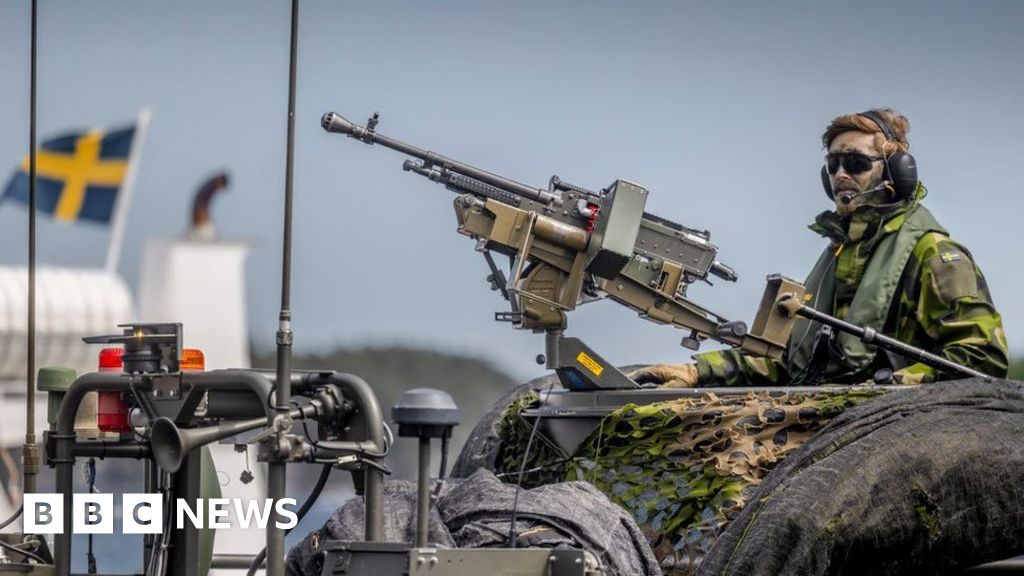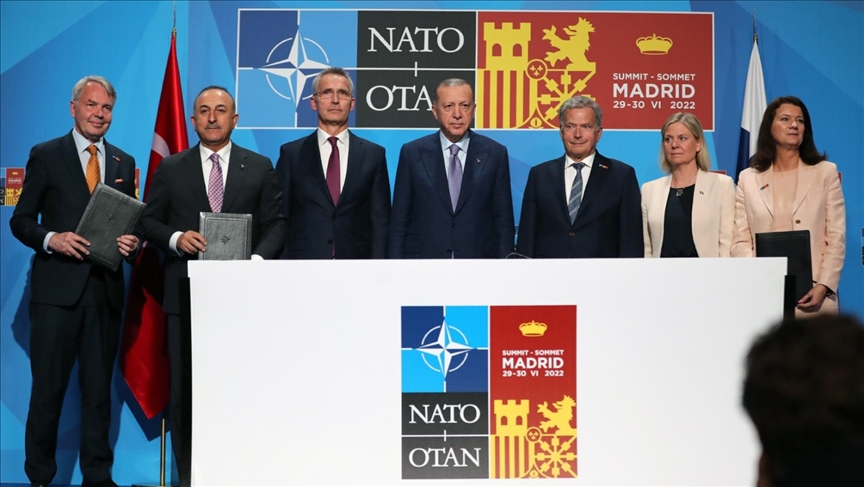Thank you. ?
It's all speculation due to the fog of war. I can not reliably estimate how bad it is on the front. But I am sure that regardless of the real situation, the Ukrainian leadership speaks of a dire situation mostly to press western allies who are still on the fence (specifically Germany and USA) to finally send in military aid in serious amounts.
The math in your last post is useless. Ukrainian territory is not homogenous when it comes to how defensible it is. The area around Donbas is heavily fortified, especially the cities. If Russians break the Donbas front, they will advance at a completely different pace.
And Russians are now fighting differently too. At first, they planned to take cities by storm. This was good for us because city warfare makes an advantage in artillery and armored vehicles less decisive. It's just a massive infantry slaughter-fest and our infantry is way more motivated and steadfast. After taking heavy losses Russians switched to a more brutal tactic. Now they raze towns to the ground with air strikes and long-range artillery making them indefensible. Our soldiers withdraw and they occupy the ruins. Rinse and repeat. So it's a losing battle for us until we get more western artillery. Lendlease won't start until October, Germans are still pulling our leg like a Turkish ice-cream vendor. So our strategy is to hold out, and slow down the Russian advance for now. We're waiting for the US to take a more decisive stance.
So in a way, the war actually happens on the diplomatic front. If the US refrains from increasing military support we eventually lose, simple as that.
I was aware of Russia's change in operational mode. Prolonged and intensive bombardment of defensible areas followed by advance eventually managed to achieve something for the Russians in Sievierodonetsk. It also cost them a lot, and it took 49 days. If we take the Ukrainian government at its word (and I don't see why we would not do so, albeit only in so far as those numbers are ballparks, after all, most independent open-source intelligence analyses and most Western "experts" who put in the analytical effort arrive at similar estimates of Russian losses to those distributed by Ukraine . . . I believe there was more disparity early in the war, but the Ukrainians probably realized that their efforts to exaggerate would lead to naught and have revised their methodology to insure that Western leadership can see they are not attempting to be too misleading).
49 Days, thousands of troops, hundreds of vehicles and other machines of war to take one small industrial town that was effectively right on the edge of the area the Russians have had under their control for years (and thus not at the culmination of a deep penetration into Ukrainian territory where their ad hoc supply lines would be stretched). That is the "might" of the Russian war machine . . . well, that and terrorizing civilian centers with periodic bombardments.
I deeply sympathize with the plight you and all Ukrainians face, but what I am trying to convey to you is that: hope is not lost, indeed, Ukraine's prospects should only grow and improve as the summer progresses. Imposing a state of hopelessness is precisely the goal of the Russian method at this stage, to demoralize not only your troops, but your entire society. THAT is why they expend limited and expensive long range missiles to attack blatantly civilian targets deep inside of strictly civilian areas. The small "pay out" of 30 dead and hundreds wounded is not the point; setting aside Russia's capacity to vaporize every city in Ukraine (and in all of Europe and North America, and China and India and pretty much all major cities everywhere on every continent) with its arsenal of medium and long-range nukes, Russia DOES NOT POSSESS THE CAPACITY to "grind down" Ukraine in the way it is so glibly described by various sell-out commentators to Putin's dream. It takes thousands of shells and bombs to "achieve" what they have achieved in a place like Mariupol or Sievierodonetsk, and while their actual stockpiles are probably only vaguely known, they are certainly not limitless. Moreover, their capacity to produce more is limited and every day your military is whittling away at their personnel and machines of war, further reducing the assets they have to carry on with the destruction.
Whether the values in the math I engaged in in the post to which you responded are perfectly accurate or not is not the point; certainly your point that the terrain is not homogeneous is apt. There will be areas of Donbas which the Russians will find easier to occupy, there will be additional areas of Donbas which Russians will find even more difficult to take than was Sievierodonetsk (this is assuming that all the signs we have of the level of professionalism, forethought, expertise, resolve and acumen in the Ukrainian leadership and military are not illusions, and that seems like a reasonable assumption to me). But I must disagree with you that the "math is useless." The model is precisely the sort of model which the Soviet military spent a great deal of effort compiling throughout the Cold War in drawing up estimates of necessary troop levels and armaments and ammunition to storm through Western Europe; all just mental exercises on paper which should not be taken to be precise engineering documentation or source code ready to debug! But precisely the type of fuzzy analytics which Napoleon and many past generals of renown engaged in habitually in countless military campaigns. The model I've used is a simple one I admit that freely, but it isn't like it couldn't be improved, for example by accounting for what fraction of those remaining 7317 square kilometers will have to be fought for at the same level of intensity as Sievierodonetsk, versus those that will not be, and those which will require even higher expenditure . . . For a back of the notepad excel sheet analysis done in 20 minutes before bed time and shared with a bunch of gamer sluts on an old bbs I think my resort was perfectly reasonable and perhaps even somewhat instructive.
The point is: Russia has a long way to go to achieve what they have stated to be their goal: to liberate the Donbas. The fact that it took them FORTY NINE DAYS and thousands of casualties to take one of the urban areas in that region (along with perhaps another 500 square kilometers of farm land and villages) is instructive. Not only this, but they concentrated a large fraction of their total assets committed to the war in Ukraine to this "advance." The whole point of it was symbolic "liberate 100% of Luhansk" as well as to create a "win" that their apologists, and fifth columnists around the world (as well as their raving lunatic State media propagandists) can all crow about as the greatest victory since Kursk.
NATO is also
upping their game.
Jens Stoltenberg: "A broad dialogue between NATO and
#Russia is no longer possible"
#NATO will increase the number of rapid reaction forces from 40,000 to 300,000 people. In addition, the alliance promises to increase support for
#Georgia and conduct more exercises there.
Increase from 40K to 300K is considerable and wouldn't be done needlessly. Do they know something we don't? What are they expecting? Is this in preparation of UA's acceptance into NATO?
Assuming there are no exaggerations going on there, I'd say that transitioning from 40,000 of the alliances troops stationed in readiness for a war with Russia to 300,000 is an enormous development. It doesn't really take much pressure off of Ukraine unfortunately because Russia knows NATO cannot declare war, per se (arguably NATOs operations in Afghanistan were not really a 'war" after all, and if it was it was "declared" on one of the member states so NATO didn't start it, etc., etc.. . .). But, it does tell Putin that Western countries are, finally!?, making at least pantomime of becoming serious about deterrence.
Deterrence means that you ready yourself for war with a potential enemy BEFORE there is a real threat. Quite the contrary to how some confused, pacifistic worldviews view building up a military for defensive purposes to be "provocative" or "de-stabilizing," it has often (I nearly said "generally" but that is probably a bit of an exaggeration) led to prolonged periods of peace. In any event, many of our generalizations from history become increasingly questionable in a world where a single vehicle can project enough firepower to destroy an entire neighborhood (or indeed, an entire metropolis if we consider nuclear-armaments).
It brings me some joy to see that common and decent folk in nations throughout the Free World are becoming aware of the axiom in that old Latin adage: Si vis pacem, para bellum.
















